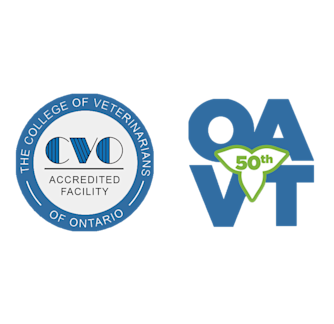How to Know When It Is Time
Dr. Bocknek's Pawspective

This has been one of those months at Abbotsford. Several long standing patients of mine reached a point in their lives where their families have had to make a hard and difficult choice. When you consider the choices we have to make concerning our furry family members; most are not that hard. What to feed them? Where they will sleep? Who’s turn is it to clean the litter box/side yard? While getting to an answer to these questions may involve a lot of family bickering, none of them are truly difficult. Yet every pet owner knows (or should know) that there will come a time in every pet’s life where the truly difficult question will be asked.
Each pet will ask it in their own way. It doesn’t matter if the pet asking is a dog, cat, bird, bunny, mouse or reptile. They will look at you and you will hear them ask, “Please, when the end comes, let it be kind, without suffering. I gave you unconditional love my entire life, now that it is coming to the end, please, put me first. Let me go with compassion and dignity.” As Veterinary professionals we struggle every time we are called upon to honor this request. Yet it is what leads up to this moment that is truly hard and heart wrenching.
How do you know when it is time to be compassionate? Most pet owners have enormous angst about making this decision, as they should. The end of life of another should never be done frivolously or without enormous thought. So what can I do as the spokesperson of those who cannot speak for themselves? How can I help my patient’s owners make the one truly challenging decision in their beloved pet's life?
Look at the good days and bad days. As animal caretakers, you know the difference between what constitutes a good day versus a bad day when it comes to our furry family members. Are they still eating? Are they still engaging with family members? Do they still want to do their favorite things, like going for walks, playing fetch? When the bad days start to outnumber the good ones, this is a strong indication that it is time.
Is there suffering? While there are disease conditions that are not painful, many are. Humans understand and have the ability to choose how they will deal with pain. Our pets do not. They live in the now. They only know they are in pain. They aren’t waiting for a wedding, graduation or the birth of a grand child. They are waiting for the pain to end. If we know that there is only going to be further progression of pain with no hope of relief, then we should truly consider acting in a kind and compassionate manner and ending the pain.
Are we in a position to provide the care that is required or are we not? This is one of the most difficult scenarios. There are times when a catastrophe comes to us and we are not able to deal with it. Some illnesses and injuries have slim chances of recovery. The cost to treat these cases is enormous. Not all of us are in the position of tapping into an emergency fund. We have children, rent/mortgages, no safety net. What are we supposed to do now? Missing a rent payment is not an option. Now is the time for the truly difficult decision. If treatment to spare our pet's pain and suffering is not within our grasp, then we can only do the next best compassionate thing. We can be there until the end. We can ensure they are treated with respect and kindness. We can hold them and talk to them. Letting them know they are loved as they pass gently into that good night.
So, how do we know when it is time? Listen to your heart, listen to your pet. Ask yourself are you making decisions for yourself or with them in the front of your mind? With compassion in your heart and love in your mind, you will know.
"As life begins with love and awe, so should it end with grace and compassion." - unknown
Abbotsford Animal Hospital - Caring for Pets for People in York Region, Aurora, Newmarket, King City, Richmond Hill and the GTA.
Jory Bocknek D.V.M.
Dr. Bocknek joined Abbotsford in 1994 and became a partner in 1996. Special interests include ophthalmology, ultrasound, behaviour, and physical rehabilitation.

